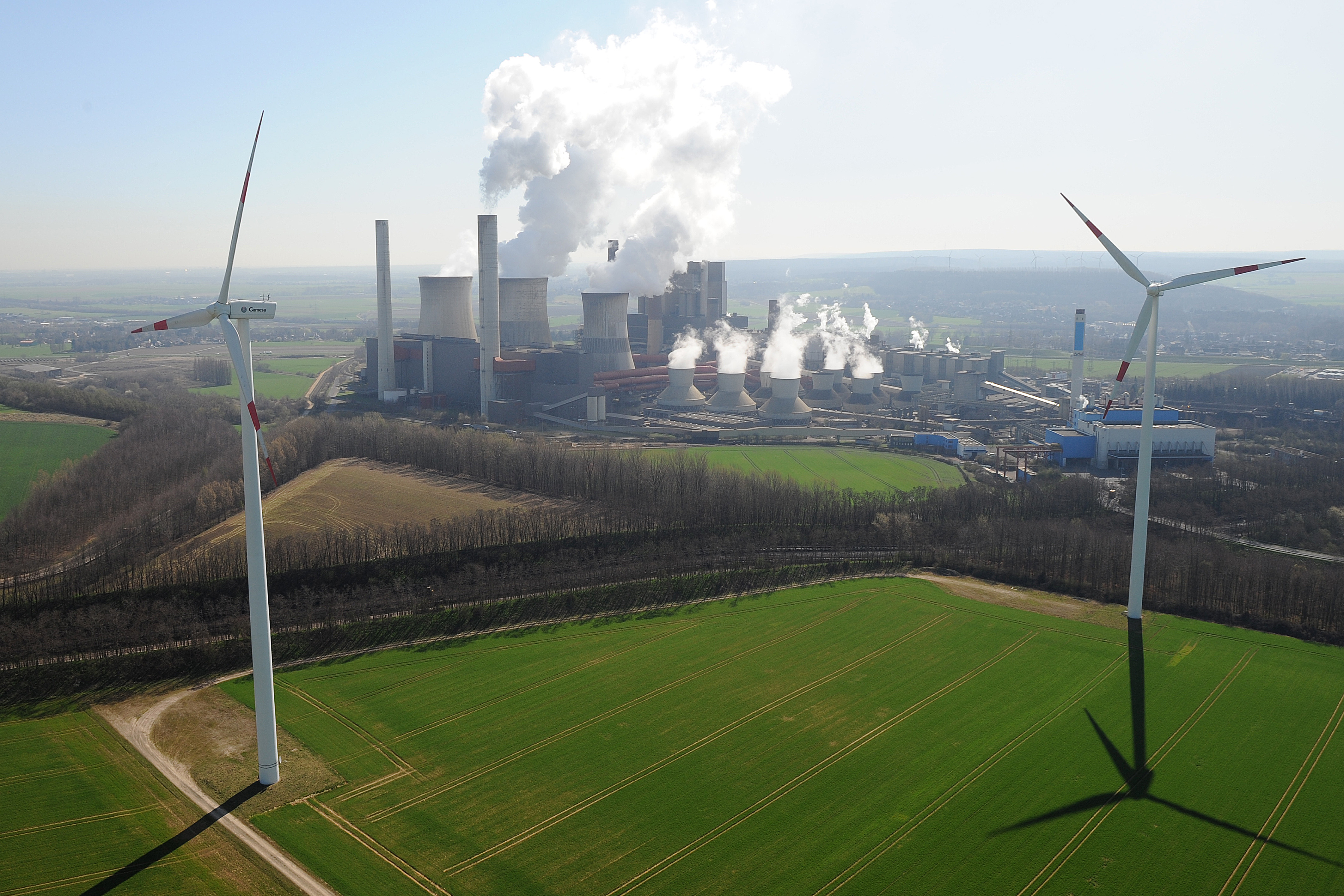Bumpy conclusion of Germany's landmark coal act clears way to next energy transition chapters
A vote to greenlight Germany's coal exit law by parliament has put an end to two years of fierce debate and wrangling over the phase-out of the country's most important fossil power source. On the day of the Bundestag's last plenary session before the annual summer break until September, the parliament adopted the bill with the majority of the government coalition of Chancellor Angela Merkel's CDU/CSU alliance and the Social Democrats (SPD). The opposition parties voted against the proposed phase-out roadmap, arguing it falls short of delivering the necessary emission reductions.
The law stipulates that coal-fired power production in the country will come to an end no later than 2038. Several reviews throughout the 2020s and beyond are meant to assess progress in rebuilding the country's energy system and the place of coal in it, possibly leading to an earlier final date for the fossil fuel. It also paves the way for a 40 billion euro support programme for the economic transformation of coal regions and legislation to compensate coal plant operators for shutting down capacity. The legislation will force Germany to focus on fully transforming its power system to run on renewable energy sources, which will require a massive expansion of wind turbines, solar farms, hydrogen production facilities and transmission grids.
"The age of fossil fuels in Germany will come to an end with this decision," economy and energy minister Peter Altmaier (CDU) said, adding that "not everyone is happy with every point of it yet” He stressed, however, that the new law marks one of several key energy transition decisions that has greatly shifted Germany's power system over the past decade. Altmaier said many were also dissatisfied with the proposed end date, but argued that this would only be the very latest deadline and that the last coal plant might actually be shut down years earlier if the review process makes it viable. "Let's not talk this law down," the minister said.
Environment minister Svenja Schulze (SPD) pointed out that the first plant would go offline this year and some of the dirtiest plants by 2022. "The coal exit doesn't only happen in 2038" but starts now, Schulze said, adding that the reviews might well lead to an earlier completion. Instead of letting market forces prevail, the government had chosen a reliable path that provides planning security for everyone.
Climate action has moved to the top of the list of concerns for many voters and even tops the coronavirus pandemic in the list of concerns of citizens the government should address during its stint at the rotating EU Council Presidency that started this July. Several dry and hot summers have elevated global warming to unprecedented attention levels in the country and the ongoing protests by the Fridays for Future (FfF) movement is part of a trend that is poised to shape the upcoming 2021 election campaign. Protests took place in 50 cities across the country on the day of the vote, according to FfF. The group criticised the long runtimes granted and compensation granted to coal operators and called the law "a challenge for the coming election."
The decision in parliament follows a long process commencing with the national coal exit commission that was established in 2018 to find a widely accepted compromise by bringing together representatives of the government, coal regions, industry, science and civil society. The group tabled its final report in early 2019, when the government began putting the plans into law. Instead of fostering national acceptance, however, the government was widely criticised by former commission members for cherry-picking conclusions made by the commissions that did not live up to climate goals.
Merkel said making the reduction of the coal share in Germany's power mix concrete was a "big step" for the country's climate policy and defended the government's handling of the commission's compromise. "In principle, we're more or less following the agreement," Merkel said. The government never said it would follow the commission in every detail but it did followed it in "core areas," such as the decommissioning path and end date, she said. "I'm very thankful that the coal exit commission did its work. We wouldn't be where we are today without it." The climate law planned for the end of year that will introduce carbon pricing in heating and transport as well as many other measures aimed at emission reductions across the board would then "complement" the coal act, the chancellor added.
The Green Party's climate and energy coordinator, Oliver Krischer, objected to Merkel's assessment that the law covers decisive points of the compromise. "We reject this law," Krischer told Clean Energy Wire, arguing that the neglection of key factors of the compromise would be too severe to overlook. The law's design will make later course corrections difficult, he said, adding that the opening of the new Datteln 4 hard coal plant and the continued demolition of villages near lignite mines undermined the coal exit's whole point. "This coal exit doesn't do enough for climate action and is not compatible" with international climate obligations, Krischer said.

The Greens' criticism was echoed in very sceptical assessments by civil society groups. Environmental Action Germany (DUH) said the premium for converting coal plants into plants running on biomass, hydrogen or natural gas would effectively turn the coal exit into a "natural gas-entry". The phase-out map will allow for about 134 million tonnes of CO2 more than what is needed to stay on track for the Paris Agreement's 1.5 degree climate target, the organisation added. Joachim Pfeiffer, energy policy spokesman of Merkel's CDU, defended the conversion premium. "Especially younger plants now get perspective and planning security," Pfeiffer told Clean Energy Wire.
Activists of environmental NGO Greenpeace protested against the compensation deal's lacking transparency at the Bundestag and by enveloping the CDU's party headquarters with a giant black cloth. The activists slammed "shady deals" allegedly made between economy minister Altmaier and the coal industry, arguing they guarantee operators billions of euros for keeping their lignite plants running longer than what would be needed to reach the country's emissions reduction targets. "This coal exit law makes a mockery of climate action," said Greenpeace's Karsten Smid.
Researchers at Germany's Institute for Applied Ecology (Öko-Institut) said the planned payments to operators could be vastly overestimated by up to 2 billion euros given coal's dire market prospects. Paying operators a flat-rate compensation would therefore be a "significantly misguided model". The assessment that coal plants will increasingly struggle to cover their operation costs under rising emission prices was mirrored by Germany's Federal Network Agency (BNetzA) in its long-term scenario planning released last week. Expecting the review process to support this view, the agency consequently adapted its planning to provide for the coal phase-out to be completed by 2035.
While it rejected the phase-out roadmap, the Green Party voted in favour of support programmes for mining regions despite the widespread view among its members that there was still "lots to be criticised", Krischer said. The coal exit law's implementation and review process will therefore likely continue to play a role in Germany's energy policy debates and in the 2021 general election. As Merkel has made clear that the current legislative period will be her last, Germany will definitely get a new chancellor – and one who is not unlikely to head a coalition of Merkel's CDU/CSU and the Green Party. According to Krischer, improving country's lacklustre record of expanding wind and solar power capacity in recent years will become the German Energiewende's crucial question in the near future.
Even though the coal exit law could be considered "a piece of history", there is no time for complacency in the government, said Ingbert Liebing, head of the German Association of Local Utilities (VKU). “It's clear that if you have an exit, there also needs to be an entry somewhere," Liebing said, stressing that a swift expansion of renewable energy sources needed to be at the top of the agenda in the coming year. The path towards reaching a 65 percent share of renewables in power consumption by 2030 will require reliable construction schedules for wind turbines, solar farms and other installations, he added. At the same time, a retrofitting of the country's power grid is needed to make sure that all of the renewable power produced can reach its consumers, Liebing noted.
The question is whether we'll have enough renewable power capacity
Energy industry association BDEW even said in order to reach the target a reform of the Renewable Energy Act (EEG) that entails an "enforced and guaranteed" expansion path with detailed roll-out plans for wind power and solar energy is indispensable."
And all of this of course will not be for free," the local utilities head said. "We have to put renewables financing on a new footing." Developing Germany's carbon pricing scheme that will be introduced next year to cover all sectors will now become a key project on the political agenda for 2021, Liebing said.
"If we end coal-fired power production to protect the climate, energy system costs will go up. Companies elsewhere in the world do not have to put up with these costs," Jörg Rothermel of energy intensive industry association EID told Clean Energy Wire. The next year will also see debates about the new price on CO2 emissions in heating and transport, starting with 25 euros per tonne in 2021. "We'll have to see what this will do to improve emission reductions," he said. Rothermel is calling for a compensation model for the industry through reduced grid fees, a recommendation also made by the coal exit commission. "Supply security is also linked to costs and this needs to be monitored closely," he said.
The industry representative added that renewables and grid expansion would be the most pressing issue from now on, especially in view of hydrogen production plans by the government to push decarbonisation in industry. "To decarbonise industry, we will need a lot of hydrogen that is produced with renewable energy sources. The question is whether we'll have enough renewable power capacity to do that," Rothermel said, adding that the government's own energy concept fails to recognise this jump in renewable power demand. "Contrary to what the government's concept says, progress in efficiency will not lead to lower power demand," he argued. "It rather looks set to go up due to e-mobility, heat pumps, hydrogen production and other technologies. But renewables expansion instead has nearly come to a standstill."

